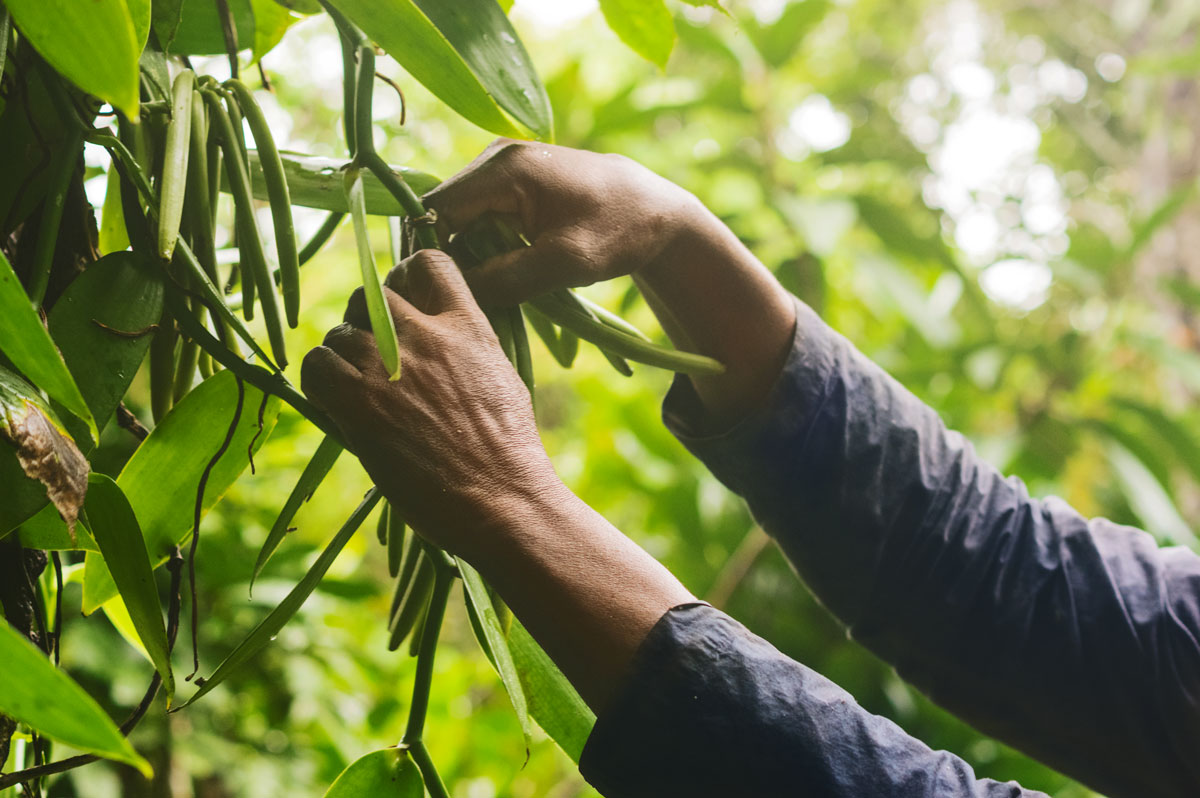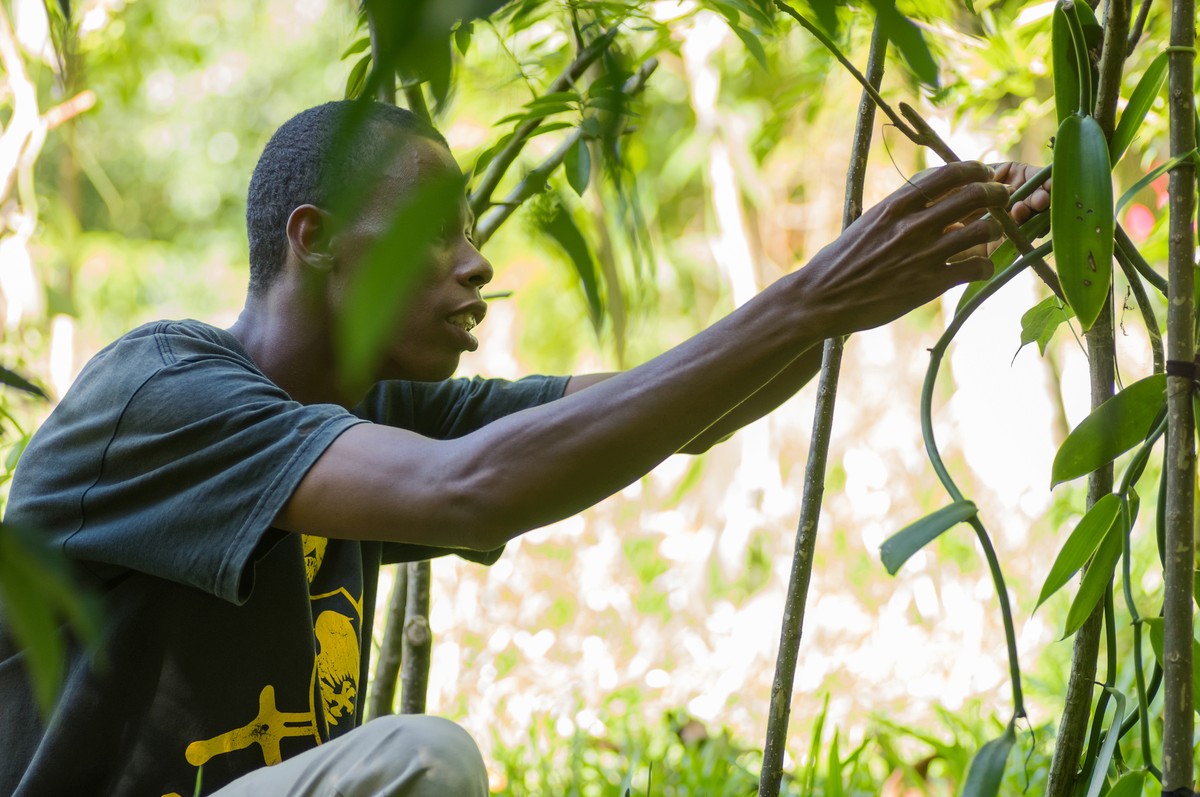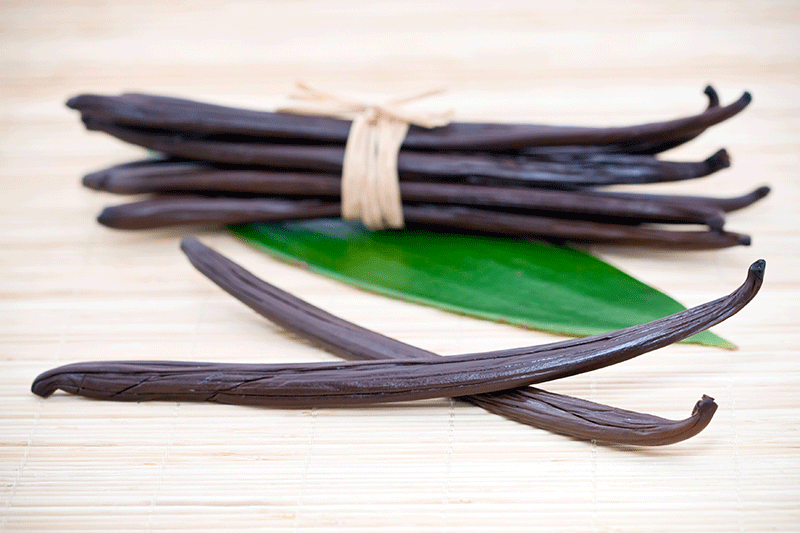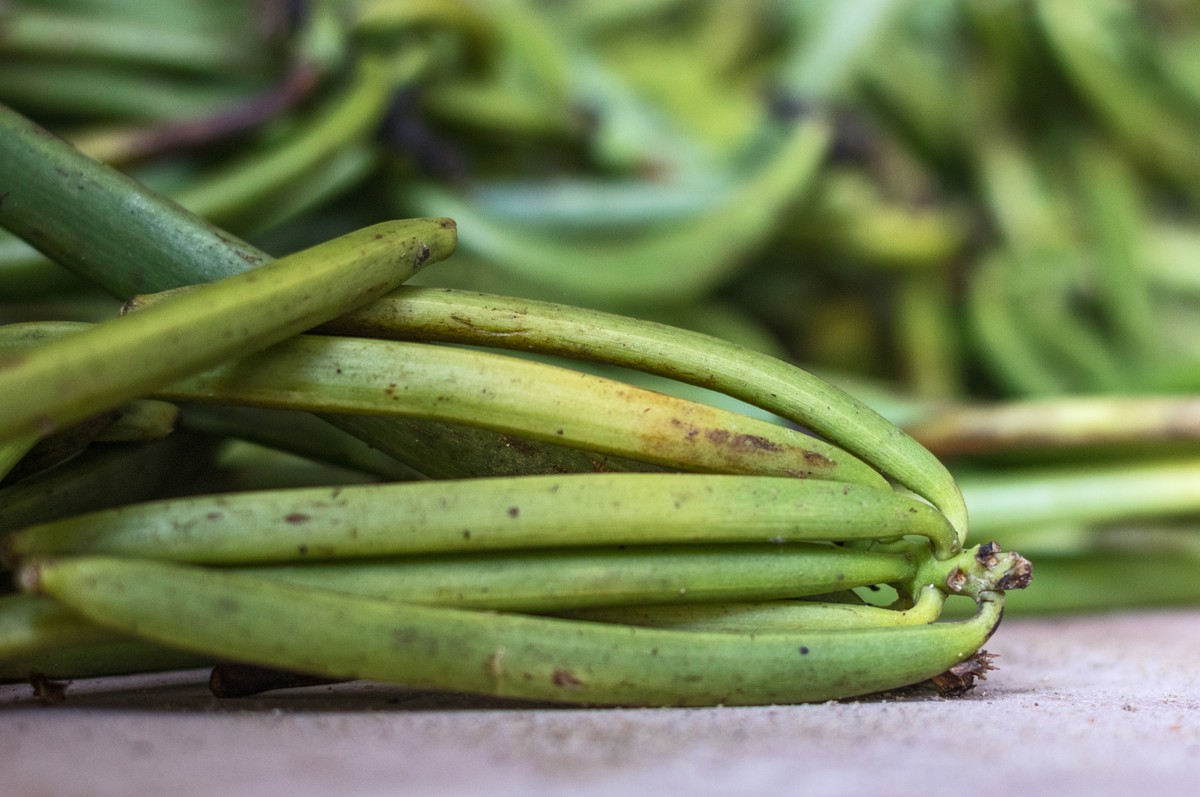Serge Rajaobelina, CEO of Fanamby, and Dominique Roques, Vice-President Naturals for Firmenich.
Fanamby is a Madagascan NGO which aims to preserve the very diverse biodiversity of Madagascar. Realizing poverty is at the core of the deterioration of ecosystems, Fanamby has initiated development activities with the island’s small farmers.
Firmenich is one of the four companies to invest in the Livelihoods Fund for Family Farming, alongside Danone, Mars and Veolia. This family-owned company is the largest privately-owned company in the fragrance and flavor business. Founded in Geneva, Switzerland, in 1895, it has created many of the world’s best-known perfumes and flavors that billions of consumers enjoy each day.
Livelihoods Venture : What are the big challenges in regards to vanilla production for an NGO like Fanamby and a private company like Firmenich?
Serge Rajaobelina: Fanamby is an NGO which was established in order to conserve endemic species and the unique Madagascan landscape. And we know that the best way to conserve a territory’s biodiversity is to allow the people who live there to sustainably use their natural resources. All our conservation efforts are combined with economic opportunities which are based on the environment and which also help to protect it.
Madagascar is the world leading producer of vanilla and this kind of production benefits from agroforestry techniques. Therefore, we tried to include the farmers in our conservation efforts. This is a very crucial issue. One could think that the soaring vanilla prices benefit the farmers, but this is far from being the case. They are actually at the very end of the vanilla value chain. They are trapped in a short-term relationship which does not allow them to have any kind of visibility regarding the future. This has an impact on the environment. When they cannot make a living from their crop production, they can be tempted to proceed with illegal logging, sometimes in protected areas, or the slash-and-burn technique in order to expand their crop production. The vanilla speculation is degrading the social climate in villages, especially because of thefts. In order to restore a stable market, we need to offer efficient social, economic and environmental solutions to the farmers they can implement themselves.
Dominique Roques: Firmenich uses 170 families of natural ingredients originating from around the world, and vanilla is one of the most important ones. It is an exceptional ingredient! You can not only find it in yogurts and ice creams, but also in perfumes. The role of vanilla is not very well-known in fine fragrance, but it plays an important role in its conception.
For the last 2 years, vanilla has been going through a major crisis due to the degradation of quality, volatile prices and omnipresent speculation. This, of course, hinders our activity and the relationship with our clients. However, what is even worse, is that all these crises are putting natural vanilla at risk. How can we tell our clients they will have to pay a lot more for a degrading quality? This is why a lot of people are looking at product reformulation and synthetically-produced vanilla.
Vanilla is one of the noblest natural and most emblematic products on this planet. All actors playing a role in this sector have a lot of responsibility. It is our collective duty to make sure the product image does not suffer even more than it already has and that its production does not shrink. This is why Firmenich has been working for over 10 years in Madagascar with local partners.

“With the Livelihoods project, everything is transparent from start to finish for both the farmers and the buyers.”
Serge Rajaobelina, President of NGO Fanamby.
L.V : How is the Livelihoods-Vanilla project innovating and how does it meet the challenges of both the farmers and the companies?
Serge Rajaobelina: The project aims to reduce the farmers’ dependency to vanilla. The majority of vanilla producers do not have any other source of revenue. When prices fall, they have nothing. And when prices soar, they find themselves in the middle of speculation. The strength and originality of the Livelihoods-Vanilla project is that it will allow farmers to produce quality vanilla without it being their only source of revenue. The Livelihoods project is located in an area where cloves, pepper and coffee grow. With this project, we will be able to include vanilla in a rural and diverse economy, and, thus, a more stable one. The diversification of crops and sources of revenues is the future of Madagascan vanilla farmers so they don’t depend on a monoculture anymore. Moreover, by allowing the farmers to take care of the curing process and to sell the vanilla themselves through a strong cooperative, we give them the opportunity to take matters in their own hands. They will no longer have to deal with middlemen. The latter used to have the power to decide the selling prices and volumes. With the Livelihoods project, everything is transparent from start to finish for both the farmers and the buyers.
Dominique Roques: One of the main difficulties for companies is that the farmers are spread out. The area is very large and people live in very difficult conditions. It is very complicated to go forward if we have to deal with thousands of farmers. The Livelihoods project remedies to this issue by federating 3,000 farmers who, together, will better their techniques and be in charge of their vanilla production from start to finish. This initiative has been made possible thanks to the quality and the economic impact of the partners involved. It is the combination of experience-sharing and of the resources of the local NGOs, the Livelihoods Fund team and private companies that has allowed us to find an integrated solution. The quality of the partners is crucial given the complexity of the project.
“This initiative has been made possible thanks to the quality and the economic impact of the partners involved.”
Dominique Roques, Vice-President Naturals for Firmenich.

L.V : The Livelihoods-Vanilla project is a 10-year project. What does this bring to the farmers and what are the implications for private companies?
Serge Rajaobelina: We work with farmers who are living under the poverty threshold and who have a very low investment capacity. The fact that the Livelihoods Fund is pre-funding their training and the technical support for the next 10 years, the creation of producer associations and the cooperative which will take care of the curing process and the sales, changes everything. This project gives the farmers the opportunity to completely change their working methods and their living conditions. The companies’ purchasing commitment over a 10-year span gives them visibility and stability in order to go through this deep transformation. For an NGO like Fanamby, this long-term commitment gives us the time needed to change the agricultural practices, so that they can benefit both the farmers and the environment.
Dominique Roques: Firmenich has been pursuing a strong sustainable procurement policy for a long time and being loyal to our suppliers and partners is a major point of this policy. What is new with the Livelihoods project is that you commit yourself based on numbers and volumes over a 10-year span. This, of course, requires some risk-taking for a company, yet the challenge seemed to worth the risk. With this project, we want to contribute to the creation of a new model allowing us to take action at all levels of the vanilla supply chain, from the social and economic conditions of Madagascan farmers to the curing and selling of vanilla.
Interview by Nishal Ramdoo/ Livelihoods Venture.
Photos: Mika Andrianoelison; Firmenich; dr322; Unclesam.
Read also:
Making Madagascar’s Green Gold Tasty Again
Discover the Livelihoods Vanilla project in Madagascar with Danone, Mars & Firmenich, investors in the Livelihoods Fund, together with Prova and local NGOs.
Learn moreVanilla from field to market: patience & precision
From the time green vanilla is harvested, around 6 months are necessary to prepare it for markets.
Learn more



